Ditapis dengan
invasion of the Dutch East Indies
compiled by the War History Office of the National Defense College of Japan ; edited and translated by Willem Remmelink.Between 1966 and 1980, the War History Office of the National Defense College of Japan published the 102-volume Senshi Sōsho (War History Series). These volumes give a detailed account of the operations of the Imperial Japanese Army and the Imperial Japanese Navy during the S…
- Edisi
- -
- ISBN/ISSN
- 9789400602298
- Deskripsi Fisik
- xxxii, 640 pages : illustrations, maps ; 27 cm
- Judul Seri
- -
- No. Panggil
- 959.80224 REM i

National reflections on the Netherlands didactics of mathematics teaching and…
This open access book, inspired by the ICME 13 Thematic Afternoon on “European Didactic Traditions”, consists of 17 chapters, in which educators from the Netherlands reflect on the teaching and learning of mathematics in their country and the role of the Dutch domain-specific instruction theory of Realistic Mathematics Education. Written by mathematics teachers, mathematics teacher educator…
- Edisi
- -
- ISBN/ISSN
- 9783030338244
- Deskripsi Fisik
- -
- Judul Seri
- -
- No. Panggil
- 510.71 NAT n
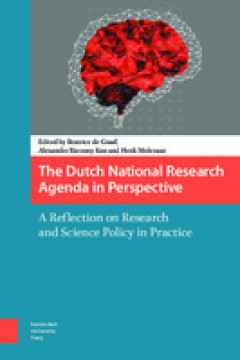
Dutch National Research Agenda in perspective:a reflection on research and sc…
edited by Beatrice de Graaf, Alexander Rinnooy Kan and Henk Molenaar.
- Edisi
- -
- ISBN/ISSN
- 9789048532827
- Deskripsi Fisik
- 240p. : ill. ; 24 cm.
- Judul Seri
- -
- No. Panggil
- 507.20492 DUT d
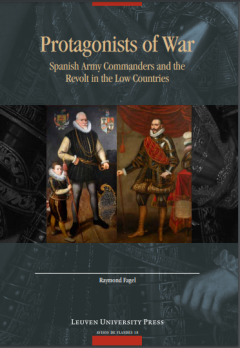
Protagonists of war :Spanish army commanders and the revolt in the Low Countries
This is a book on early modern war narratives. In order to reach a fuller understanding of war narratives in general and those on the Revolt in the Low Countries in particular, it is necessary to return to the stories as they came into being. How did people describe the events they participated in, witnessed or heard about? Episodic descriptions of war events and their protagonists can be …
- Edisi
- -
- ISBN/ISSN
- 9789461664044
- Deskripsi Fisik
- 388p
- Judul Seri
- -
- No. Panggil
- 949.203 RAY p
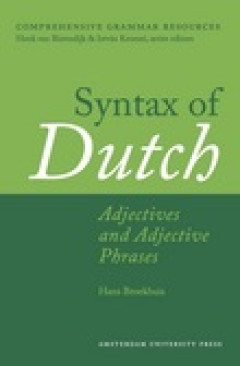
Syntax of Dutch:adjectives and adjective phrases
The Syntax of Dutch will be published in at least seven volumes in the period 2012-2016 and aims at presenting a synthesis of the currently available syntactic knowledge of Dutch. It is primarily concerned with language description and not with linguistic theory, and provides support to all researchers interested in matters relating to the syntax of Dutch, including advanced students of languag…
- Edisi
- -
- ISBN/ISSN
- 9789089645494
- Deskripsi Fisik
- -
- Judul Seri
- -
- No. Panggil
- 439.315 BRO s
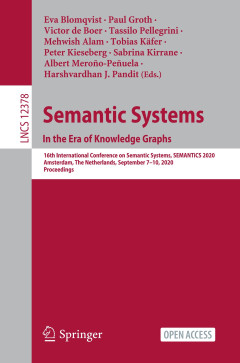
Semantic Systems. in the era of knowledge graphs :16th International Conferen…
This open access book constitutes the refereed proceedings of the 16th International Conference on Semantic Systems, SEMANTiCS 2020, held in Amsterdam, The Netherlands, in September 2020. The conference was held virtually due to the COVID-19 pandemic.
- Edisi
- -
- ISBN/ISSN
- 9783030598334
- Deskripsi Fisik
- xii, 126p. : ill.
- Judul Seri
- -
- No. Panggil
- 025.04 SEM s
Healers on the colonial market:native doctors and midwives in the Dutch East …
Healers on the colonial market is one of the few studies on the Dutch East Indies from a postcolonial perspective. It provides an enthralling addition to research on both the history of the Dutch East Indies and the history of colonial medicine. This book will be of interest to historians, historians of science and medicine, and anthropologists. How successful were the two medical training prog…
- Edisi
- -
- ISBN/ISSN
- 9789067183826
- Deskripsi Fisik
- -
- Judul Seri
- -
- No. Panggil
- 610.9 HES h

Operations of the navy in the Dutch East Indies and the bay of Bengal
compiled by the War History Office of the National defense College of Japan ; edited and translated by Willem Remmelink.
- Edisi
- -
- ISBN/ISSN
- 9789400602939
- Deskripsi Fisik
- xxxiv, 742p : ill., maps ; 27 cm.
- Judul Seri
- -
- No. Panggil
- 940.5425 REM o

Narratives of low countries history and culture
This edited collection explores the ways in which our understanding of the past in Dutch history and culture can be rethought to consider not only how it forms part of the present but how it can relate also to the future. Divided into three parts – the uses of myth and history, the past as illumination of cultural context, and historiography in focus – this book seeks to demonstrate the imp…
- Edisi
- -
- ISBN/ISSN
- 9781910634998
- Deskripsi Fisik
- 250 p.; 22 cm.
- Judul Seri
- -
- No. Panggil
- 900 NAR n

Postcolonial Netherlands:sixty-five years of forgetting commemorating, silencing
- Edisi
- -
- ISBN/ISSN
- 9789048514021
- Deskripsi Fisik
- -
- Judul Seri
- -
- No. Panggil
- 940.5 OOS p
- Edisi
- -
- ISBN/ISSN
- 9789048514021
- Deskripsi Fisik
- -
- Judul Seri
- -
- No. Panggil
- 940.5 OOS p

Public involvement in knowledge generation:citizen science opportunities in t…
- Edisi
- -
- ISBN/ISSN
- 9781789060492
- Deskripsi Fisik
- -
- Judul Seri
- -
- No. Panggil
- 333.9113 BRO p
- Edisi
- -
- ISBN/ISSN
- 9781789060492
- Deskripsi Fisik
- -
- Judul Seri
- -
- No. Panggil
- 333.9113 BRO p
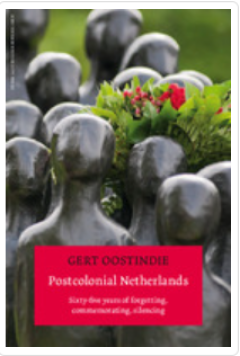
Postcolonial Netherlands :sixty-five years of forgetting, commemorating, sile…
The Netherlands is home to one million citizens with roots in the former colonies Indonesia, Suriname and the Antilles. Entitlement to Dutch citizenship, pre-migration acculturation in Dutch language and culture as well as a strong rhetorical argument (‘We are here because you were there’) were strong assets of the first generation. This ‘postcolonial bonus’ indeed facilitated their int…
- Edisi
- -
- ISBN/ISSN
- 9789048514021
- Deskripsi Fisik
- 290p.: ill.
- Judul Seri
- -
- No. Panggil
- 940.5 OOS p
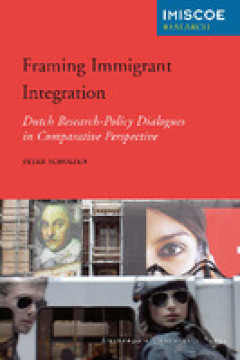
Framing immigrant integration :Dutch research-policy dialogues in comparative…
Debates on immigrant integration are often caught up in what academics and politicians like to call 'national models of integration'. Researchers and policymakers long for common ground. In the Netherlands, their symbiosis is fed by multiculturalism, something for which Dutch society has long been seen as exemplary. Still, the incorporation of migrants remains one of the country's most pressing…
- Edisi
- -
- ISBN/ISSN
- 9789048513604
- Deskripsi Fisik
- 320 p.
- Judul Seri
- -
- No. Panggil
- 325.492 SCH f

Protagonists of war :Spanish army commanders and the revolt in the Low Countries
This is a book on early modern war narratives. In order to reach a fuller understanding of war narratives in general and those on the Revolt in the Low Countries in particular, it is necessary to return to the stories as they came into being. How did people describe the events they participated in, witnessed or heard about? Episodic descriptions of war events and their protagonists can be …
- Edisi
- -
- ISBN/ISSN
- 9789461664044
- Deskripsi Fisik
- 388p
- Judul Seri
- -
- No. Panggil
- 949.203 RAY p
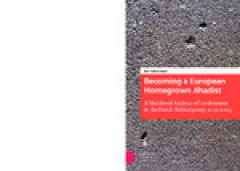
Becoming a European Homegrown Jihadist :A Multilevel Analysis of Involvement …
How and why do people become involved in European homegrown jihadism? This book addresses this question through an in-depth study of the Dutch Hofstadgroup, infamous for containing the murderer of filmmaker Theo van Gogh, who was killed in November 2004 in Amsterdam, and for plotting numerous other terrorist attacks. The Hofstadgroup offers a window into the broader phenomenon of homegrown jiha…
- Edisi
- -
- ISBN/ISSN
- 9789462986930
- Deskripsi Fisik
- 287 p.
- Judul Seri
- -
- No. Panggil
- 363.3 BEC B
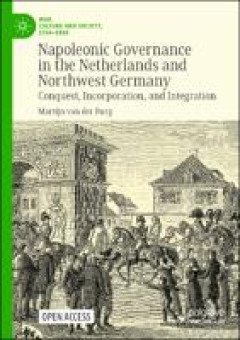
Napoleonic Governance In The Netherlands And Northwest Germany
“Van der Burg presents an innovative transregional study of Napoleonic governance in the often-overlooked northern periphery of the Empire. This book carefully examines the Empire’s administrative structure in the north, focusing on the heterogeneous community of prefects and subprefects as ‘tools of incorporation’, binding the regions to the central state. His rich comparative analysis…
- Edisi
- -
- ISBN/ISSN
- 9783030666583
- Deskripsi Fisik
- -
- Judul Seri
- -
- No. Panggil
- -
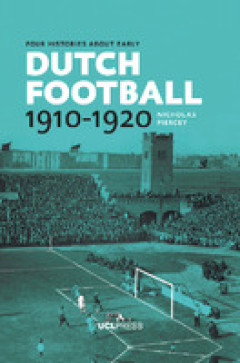
Four Histories About Early Dutch Football 1910-1920
What is the purpose of history today, and how can sporting research help us understand the world around us? In this stimulating book, Nicholas Piercey constructs four new histories of early Dutch football, exploring urban change, club members, the media, and the diaries of Cornelis Johannes Karel van Aalst, a stadium director, to propose practical examples of how history can become an important…
- Edisi
- -
- ISBN/ISSN
- 9781910634790
- Deskripsi Fisik
- -
- Judul Seri
- -
- No. Panggil
- -

Protagonists of war :Spanish army commanders and the revolt in the Low Countries
This is a book on early modern war narratives. In order to reach a fuller understanding of war narratives in general and those on the Revolt in the Low Countries in particular, it is necessary to return to the stories as they came into being. How did people describe the events they participated in, witnessed or heard about? Episodic descriptions of war events and their protagonists can be …
- Edisi
- -
- ISBN/ISSN
- 9789461664044
- Deskripsi Fisik
- 388p
- Judul Seri
- -
- No. Panggil
- 949.203 RAY p
 Karya Umum
Karya Umum  Filsafat
Filsafat  Agama
Agama  Ilmu-ilmu Sosial
Ilmu-ilmu Sosial  Bahasa
Bahasa  Ilmu-ilmu Murni
Ilmu-ilmu Murni  Ilmu-ilmu Terapan
Ilmu-ilmu Terapan  Kesenian, Hiburan, dan Olahraga
Kesenian, Hiburan, dan Olahraga  Kesusastraan
Kesusastraan  Geografi dan Sejarah
Geografi dan Sejarah